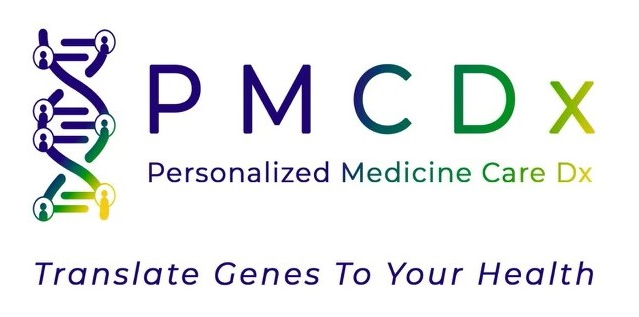| BARD1 |
Heterozygous pathogenic variants in the BARD1 gene raise an individual’s risk of developing breast cancer in their lifetime. While a possible association with ovarian cancer has been raised, at this time, there is not enough evidence to link variants in this gene to an increased risk. Additional research is needed. |
PubMed:23586058, 26720728, 28418444; OMIM: 114480 |
| BRCA1 |
Autosomal dominant pathogenic variants in the BRCA1 gene are the most common cause of hereditary breast and ovarian cancer syndrome (HBOC), which includes up to a 63% lifetime risk for ovarian cancer. |
PubMed: 9497246, 12677558, 17416853, 20301425, 22846731 |
| BRCA2 |
Autosomal dominant mutations in the BRCA2 gene are implicated in the hereditary breast and ovarian cancer syndrome (HBOC). Additionally, biallelic mutations in BRCA2 gene are associated with autosomal recessive Fanconi anemia Type D1 . |
PubMed: 12065746, 12677558, 9497246, 17416853, 18042939, 20301425, 22846731 |
| CDH1 |
Pathogenic heterozygous variants in the CDH1 (E-cadherin) gene are associated with an increased risk for gastric and lobular breast cancer. At this time, pathogenic variants in CDH1 are not associated with an increased risk for ovarian cancer. |
PubMed: 11729114, 20301318; OMIM: 192090 |
| MSH6 |
Autosomal dominant pathogenic variants in MSH6 are associated with Hereditary Non-Polyposis Colorectal Cancer (HNPCC), also known as Lynch Syndrome. Biallelic pathogenic variants have been associated with constitutional mismatch repair deficiency syndrome (CMMRD). |
PubMed: 20301390, 22692065; OMIM: 120436 |
| EPCAM |
Heterozygous pathogenic variants in the EPCAM gene cause Hereditary Non-Polyposis Colorectal Cancer (HNPCC), also known as Lynch Syndrome, which is associated with an increased risk for ovarian cancer. |
PubMed: 20301390, 23462293 |
| MLH1 |
While heterozygous pathogenic variants in MLH1 are associated with Hereditary Non-Polyposis Colorectal Cancer (HNPCC), also known as Lynch Syndrome, biallelic pathogenic variants have been associated with constitutional mismatch repair deficiency syndrome (CMMRD). |
PubMed: 20301390, 22692065; OMIM: 120436 |
| MRE11 |
Autosomal dominant pathogenic variants in the MRE11 gene, also known as MRE11A, have been associated with a predisposition to breast cancer . Biallelic mutations in the MRE11A gene are associated with MRE11 deficiency, an ataxia telangiectasia-like disorder. At this time, an association with ovarian cancer has not been found; additional research is needed. |
PubMed: 26436112, 26328243, 15574463; OMIM: 600814 |
| MSH2 |
Heterozygous pathogenic variants in MSH2 are associated with Hereditary Non-Polyposis Colorectal Cancer (HNPCC), also known as Lynch Syndrome. Biallelic pathogenic variants have been associated with constitutional mismatch repair deficiency syndrome (CMMRD). |
PubMed: 20301390, 22692065; OMIM: 120436 |
| NBN |
Heterozygous pathogenic variants in NBN (also known as NBS1) have been associated with a number of malignancies, including breast cancer. Biallelic pathogenic variants in NBN have been associated with Nijmegen Breakage syndrome (NBS). While an association with ovarian cancer has been suggested, there is not currently enough evidence to confirm an association. Additional research is needed. |
PubMed: 26315354, 21514219, 20301355; OMIM: 609135, 251260 |
| PMS2 |
Heterozygous pathogenic variants in PMS2 are associated with Hereditary Nonpolyposis Cancer Syndrome (HNPCC), also known as Lynch syndrome. PMS2 is the least common of the mismatch repair genes that cause HNPCC, accounting for less than 5% of cases. Biallelic pathogenic mutations in PMS2 have been associated with constitutional mismatch repair deficiency syndrome (CMMRD). |
PubMed: 20301390, 22692065 |
| RAD51C |
Heterozygous pathogenic variants in RAD51C are associated with an increased risk for ovarian cancer, and possibly breast cancer. Additionally, biallelic pathogenic variants in RAD51C were reported to be associated with Fanconi anemia. |
PubMed: 22476429, 22538716, 21990120, 2841844 |
| RAD51D |
Heterozygous pathogenic variants in RAD51D are associated with an increased risk for breast cancer and ovarian cancer. |
PubMed: 21822267, 26261251, 2841844 |
| SMARCA4 |
Autosomal dominant pathogenic variants in SMARCA4 are associated with Small cell carcinoma of the ovary, hypercalcemic type (SCCOHT), and Rhabdoid tumor predisposition syndrome (RTPS). |
PubMed: 25494491, 24752781, 24658002 |
| STK11 |
Autosomal dominant pathogenic variants in STK11 have been associated with Peutz-Jeghers syndrome (PJS) which is associated with an increased risk for multiple types of cancer, including breast, ovarian, gastric, colorectal, and pancreatic. |
PubMed: 15121768, 20301443; OMIM: 175200, 260350 |
| TP53 |
Heterozygous pathogenic variants in the TP53 gene are associated with Li-Fraumeni syndrome, a condition that increases risk for many types of cancer, including ovarian cancer. |
PubMed: 20301488, 26014290, 2614290; OMIM: 151623, 191170 |
| PALB2 |
Autosomal dominant pathogenic variants in PALB2 have been associated with an increased risk of some types of cancer, including breast and pancreatic cancer. While an association with ovarian cancer has been suggested, there is not currently enough evidence to confirm an association. Additional research is needed. Biallelic pathogenic variants in PALB2 have been associated with Fanconi anemia of complementation group N (FANCN) . |
PubMed: 17200672, 24870022, 17200668, 21285249, 24141787, 25099575; OMIM: 610355 |
| BRIP1 |
Heterozygous pathogenic germline variants in the BRIP1 gene are associated with an increased risk for ovarian cancer. Biallelic mutations in BRIP1 have been associated with Fanconi anemia of complementation group J (FANCJ). |
PubMed: 24301948, 28085182, 20301575; OMIM: 609054, 605882 |
